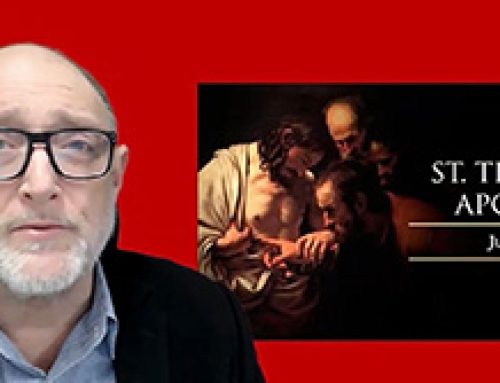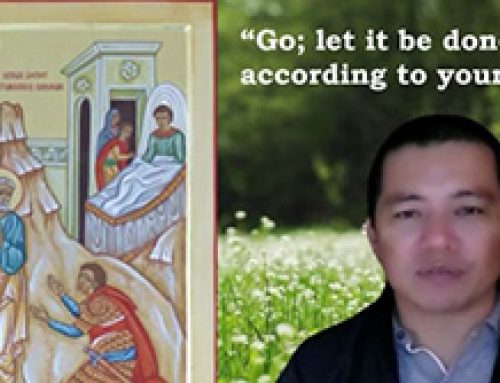Deacon Prodencio Bognay reads from the Gospel of Luke (19: 11-28) in which Jesus tells the parable of the King who entrusts his servants with the task of investing his money and says, ‘To everyone who has will be given more, but from the man who has not, even what he has will be taken away’ (Luke 19:26).
Prodencio invites us to interpret this story from our experience of spiritual gifts, of graces, rather than material things. If we read this story thinking about justice as we understand it, there is no way we can say that justice has been served. We can all agree the punishment given was not proportionate to the action done. Rather than seeing this story as a dramatization of what could happen in the kingdom of God, Prodencio invites us to see it based on our raw experiences of God’s blessings or graces. By raw experiences Prodencio refers to those of extraordinary joy, happiness, peace, serenity, sense of meaning and purpose, wisdom and understanding and the like.
When we talk about our level of our happiness, peace, serenity and, even, having wisdom and understanding, we know the difference when we have them and when we are lacking of them. The more we exert effort to have them or the more we put ourselves to work hard for them, the more we can receive them. For instance, Prodencio notes, the more we devote ourselves to living a peaceful life, we know exactly that our sense of peace increases. There is no guarantee that our material possessions will increase if we devote ourselves to spiritual life. In reference to our raw experiences, however, we can know exactly what it means to find priceless treasure in pursuing our spiritual life.
Prodencio says, to a certain extent each of us is born spiritual. If we are not careful, however, he notes, we can lose contact with such a spiritual identity. It seems like this is the warning of Jesus when he says, ‘but from the man who has not, even what he has will be taken away’.
In closing, Prodencio invites us to reflect on how we can grow in our spiritual identity






Leave A Comment